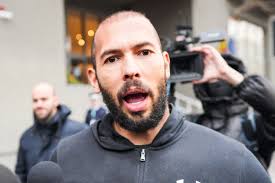
Can Andrew Tate Travel Now? Current Travel Status Explained
Andrew Tate's Legal Battles

Andrew Tate is currently entangled in a complex legal situation centered around serious allegations and charges. These legal struggles involve multiple European entities and have far-reaching implications for his ability to travel.
Origins of Allegations and Charges
Andrew Tate, a high-profile British-U.S. citizen and online influencer, faces accusations of human trafficking and rape. These allegations emerged from an investigation led by Romanian prosecutors in 2022. Authorities claim Tate was involved in illegal activities, including forming a criminal gang to exploit victims. Specific instances reportedly took place in Ilfov County. The preliminary chamber of the Bucharest Tribunal issued arrest warrants, leading to Tate's detention and subsequent legal battles.
Current Status of Legal Proceedings
Tate's trial is ongoing, with a Romanian court recently approving the continuation of proceedings on April 26, 2024. He is currently awaiting trial while under judicial restrictions enforced by the Bucharest Court of Appeal. This court ruling prevents him from leaving Romania. An attempt to relax these restrictions was denied in a subsequent appeal on May 10, 2024. These legal proceedings significantly impact Tate's freedom and daily movements.
Involvement of European Legal Entities
Multiple European legal entities are involved in Tate's case. Romanian prosecutors spearheaded the initial investigation, resulting in his arrest and indictment. The Bucharest Tribunal and Bucharest Court of Appeal play central roles in the ongoing judicial process. Additionally, British authorities and the Crown Prosecution Service are reportedly monitoring the situation, given Tate's citizenship status. Although no formal charges have surfaced in the U.K., the severity of the allegations ensures that multiple European legal frameworks remain engaged.
Impact on Travel and Mobility

The recent court rulings and decisions have significant implications for Andrew Tate's ability to travel and move freely. These legal developments affect his mobility both within Romania and potentially internationally.
Geographical and Legal Restrictions
Andrew Tate's travel within Romania has been significantly impacted by legal restrictions. Initially, he could not travel outside the Bucharest area without the court's explicit permission. This geographical restriction has now been eased, allowing him to move more freely within Romania. However, he remains under close judicial scrutiny due to ongoing investigations and allegations.
During his house arrest, which lasted for several months, Tate faced limitations on his movements, affecting his daily activities and engagements. Although he now enjoys increased mobility within national borders, his ability to travel abroad remains uncertain. Legal procedures and ongoing investigations still pose considerable barriers.
Potential Outcomes for International Movement
Concerning international travel, Andrew Tate's situation remains complex. Despite his enhanced freedom within Romania, his request to travel within the European Union was denied. This means he cannot freely move across the id-check-free Schengen Zone without obtaining special approvals from the judiciary.
The broader allegations, including accusations of human trafficking and forming a criminal gang, remain unresolved. These serious charges significantly influence his travel capabilities, as they restrict his ability to obtain travel authorizations. Without clearance from the Romanian courts, international movement for Tate remains heavily constrained. It's crucial to consider how these legal battles may shape his future travel prospects, especially in regions like the Schengen Zone.
Public and Media Perception

Andrew Tate’s situation has attracted significant attention across various media and social platforms. This section will explore how social media and news agencies report on Tate and how public image shifts affect his sponsorships.
Coverage by Social Media and News Agencies
Andrew Tate's activities and legal troubles frequently make headlines. Major news agencies like AP report extensively on his judicial issues, such as appeals and challenges to restrictions imposed on his travel.
Social media platforms also magnify his influence by both critiquing and supporting his narratives. For instance, on platforms like X (formerly Twitter), debates about his views and actions often trend, harnessing massive engagement. Videos and posts featuring Tate typically garner millions of interactions, demonstrating his polarizing presence.
Shifts in Public Image and Sponsorships
Tate's public image is a mixed bag. His misogynistic views and displays of wealth alienate many but attract a significant following of like-minded individuals. As his legal battles continue, public opinion fluctuates.
Brands and sponsorships tend to distance themselves from controversy. Many companies have retracted support or endorsements due to his negative image. This dynamic affects his marketability, as sponsors avoid associating with figures embroiled in criminal accusations and hate speech allegations.
Personal and Financial Ramifications

The relaxation of Andrew Tate's travel restrictions in Romania does not come without significant personal and financial consequences. These ramifications extend from asset seizures to the vital role of crowdfunding in his financial support.
Seizure of Assets and Financial Impact
Authorities have seized numerous assets from Andrew and Tristan Tate amid ongoing investigations. These include luxury cars, designer watches, and significant amounts of cash. These asset seizures serve not only to halt any potential fleeing but also disrupt their lavish lifestyle.
Andrew, a former kickboxer, claims that these seizures are part of a broader conspiracy against him. The financial impact includes frozen bank accounts, limiting daily operations and business ventures. The assets seized often total in millions, affecting both direct cash flow and long-term financial stability.
The Role of Crowdfunding and Financial Support
In response to the seizures and legal battles, Tate has turned towards crowdfunding. This approach seeks support from his extensive follower base across remaining social platforms. Often, these campaigns are spearheaded by his loyal supporters.
Crowdfunding aims to cover legal fees and offer personal financial support. Andrew's spokesperson, Mateea Petrescu, frequently updates supporters on his needs. Despite these efforts, financial stability remains in jeopardy, showcasing how public support only partially mitigates the financial strain imposed by legal actions.
Subsequent Developments and Predictions

Andrew Tate's case has seen a series of legal maneuvers and significant public debate. Understanding the latest updates and future implications is crucial to grasp the broader impact of his situation.
Updates on Prosecution and Defense Strategies
Eugen Vidineac, Tate's lawyer, continues to argue that the charges are a form of political conspiracy and a witch-hunt. Vidineac's defense strategy highlights alleged holes and inconsistencies in the prosecution's evidence.
The prosecution, in return, has gathered more testimonies and documentation, suggesting Tate led an organized crime group. Their focus remains on proving the systematic abuse and exploitation that occurred. The Preliminary Chamber Stages have introduced new procedural challenges. Both sides are firmly entrenched in their narrative, with legal tactics evolving as the trial progresses.
Projected Influence on Legal and Social Norms
The trial's developments could reshape how accusations of human trafficking and organized crime are legally approached in Romania and the broader EU.
Flexibility in judicial restrictions, like the recent relaxation allowing Tate to travel within Romania, might set future precedents. Watching how the case progresses through cities like Bucharest Municipality and Sighisoara can provide further insights.
Socially, Tate's millions of followers on platforms may influence public perceptions of justice and media framing of high-profile cases. The trial’s outcome might inform policies on digital influencers' accountability and how their online personas impact real-world legal consequences.
Frequently Asked Questions
This section addresses questions about Andrew Tate's current travel restrictions, his legal situation, and the impact on his business and personal travel plans.
What are the recent updates on Andrew Tate's travel restrictions?
Andrew Tate can now travel freely within Romania. This follows a recent court decision to ease his travel restrictions, which were previously limited to Bucharest and Ilfov County.
How has Andrew Tate's legal situation affected his ability to travel?
Tate's legal troubles, including charges of human trafficking and rape, have restricted his movements. Despite the eased travel restrictions within Romania, he remains prohibited from leaving the country.
Are there any exceptions to Andrew Tate's current travel limitations?
No known exceptions currently allow Andrew Tate to travel outside Romania. His legal situation confines him to the country until the court rules otherwise.
What countries are involved in Andrew Tate's recent travel controversy?
Romania is the main country involved in the travel restrictions surrounding Andrew Tate. His legal case, including charges and trial proceedings, is based in Romania.
How does Andrew Tate's status impact his business and travel plans?
Tate's inability to travel internationally affects his business operations and personal travel plans. Being a public figure with significant online followings, these restrictions limit his engagements and potential business opportunities abroad.
Has recent news about Andrew Tate mentioned changes to his travel status?
Recent updates indicate that while Andrew Tate can travel freely within Romania, he cannot leave the country. New decisions on his travel restrictions will depend on ongoing legal proceedings.
